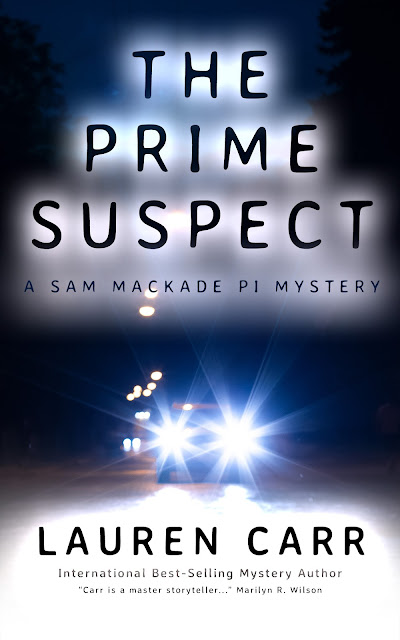Article by Maggie Hammond
There is no tried and tested formula that can guarantee you make it as a writer - indeed, maybe people have wildly varying definitions of what exactly constitutes ‘making it.’ But nonetheless, this article will explore some of those small adjustments that aspiring writers can make to ensure they’re well-placed to get published, well reviewed, and ultimately catapulted into the sort of writing reputation you’ve striven for so long
Read
Getting yourself stuck into a book was probably what started your long journey towards wanting to become a writer in the first place and, whether you’re still an avid reader or life has taken you away from the written word for any of a multitude of reasons, it’s time to place books and reading at the top of your priority tree. Reading is how we learn not only huge overarching plot structures, narrative arcs, and mythic motifs; it’s also on a smaller scale a way of acquiring a new language, complex and interesting sentence structure, and a variety of tones that can only inform your writing.
Again, anyone who enjoys reading and writing will be aware that they tend to write in the style of the last book they read - a sort of happy subconscious plagiarism that, over the course of our lives, becomes a tapestry of the words we’ve read and the stories we’ve remembered. It’s the primary source of information and inspiration for writers and always will be, so ensure you are never without a book and that your bookshelf is fully stocked with books you cannot wait to penetrate. All will inform your writing.
Routine
One frustration of all creatives is the oppressive nightmare that is establishing and keeping to a set routine. But what it’s better than is sitting on one’s hands all day, waiting for that flash of inspiration to arrive, and in the meantime filling your time with useless tasks. This would be arguably much less productive.
What you’ll want to do instead is find your best working hours and ensure that you’re devoting yourself towards your goal for a set number of hours each day. Check out the writing routines of some famous writers from the past for a little bit of perspective here Some wake at 4 and break at midday until a late-evening writing session, while others prefer 2-hour bursts with coffees streaming in at regular intervals. Even if you spend part of your routine reading or day-dreaming, these activities should help your writing thoughts coalesce around something meaningful and inspirational. Taking some time out to get inspired may lead to your next big idea.
Note-Taking
All writers should never be without at least one notebook. Ideas and reflections can come at any moment and can just as quickly evaporate into nothingness in creative minds that are always piecing together symbols in unique and exciting ways. Latching onto a thought for long enough to write it down, storing it for future consumption, is making a small prospective investment in your own imaginative capacity to intrigue readers.
Other than keeping a notebook, there are some useful apps and programs out there that you can store your notes in. The benefits are multiple: for one, they’re stored online, so that you can access them anywhere in the world and you can be sure they’ll never get lost, as valuable notebooks have a habit of doing. Access from various points can be perfect if you want to write on the go. Further, you’ll be able to search words and phrases to quickly locate a long-ago submitted note that might have taken you a good bit of thinking to unearth in a physical note-filing system. Check out Evernote to start you off, although there’s plenty of other options out there. Keeping track of your ideas is vital as there would be nothing more frustrating than losing your notes for a piece that you suddenly feel inspired to take on.
Blogging
Blogging is useful as it’s an inoffensive and unobtrusive place to publish your writing. You can make it as private or public as you may desire and can take some time developing the aesthetic. You may have written a chapter of a book that you have never since felt the same about, though you cherish the chapter all the same or some poetry that’s never seen the light of day beyond a folder on your laptop. It’s time to be confident and gently expose yourself to the criticism and feedback that blogging entails. Blogging communities are, on the whole, kind and supportive places, so you needn’t worry about a deluge of hate mail.
Regularly posting on a blog is also useful when it comes to the time you’d like to expose yourself as an author, either with prospective publishing companies or, if you’ve already got a book out, in order to build a following of people who enjoy your writing and would like to sample more. Read up on building an author blog and the benefits it’ll bring if you’re unconvinced.
Confidence
When all is said and done, there’s one key element of making it as a writer, and that’s having the confidence to put yourself out there, a confidence in your voice and your contribution to the writing world. Confidence will abolish perfectionism and will negate the stifling effects of writer’s block, enabling you to rattle off hundreds of words a day without crippling self-doubt.
Even if you cherish your crippling self-doubt as a self-critical mechanism, you should still be bold enough to write continuously without forever stopping to reread and re-edit pieces of your writing that you’re desperate to make as good as possible. Of course, getting your meaning across is incredibly important, but a lot of that is done unconsciously, so trust in yourself and have the confidence to self-publish when everything’s finished.
While this isn’t an algorithm for success, these tips should nonetheless be helpful in search of any writer to achieve what they set out to achieve.
Maggie Hammond is a retired nurse and freelance writer, exploring and writing in the U.S. in retirement. An advocate for public health and nursing qualifications, she feels passionate about raising awareness of the current strain on public health organisations.
Other than keeping a notebook, there are some useful apps and programs out there that you can store your notes in. The benefits are multiple: for one, they’re stored online, so that you can access them anywhere in the world and you can be sure they’ll never get lost, as valuable notebooks have a habit of doing. Access from various points can be perfect if you want to write on the go. Further, you’ll be able to search words and phrases to quickly locate a long-ago submitted note that might have taken you a good bit of thinking to unearth in a physical note-filing system. Check out Evernote to start you off, although there’s plenty of other options out there. Keeping track of your ideas is vital as there would be nothing more frustrating than losing your notes for a piece that you suddenly feel inspired to take on.
Blogging
Blogging is useful as it’s an inoffensive and unobtrusive place to publish your writing. You can make it as private or public as you may desire and can take some time developing the aesthetic. You may have written a chapter of a book that you have never since felt the same about, though you cherish the chapter all the same or some poetry that’s never seen the light of day beyond a folder on your laptop. It’s time to be confident and gently expose yourself to the criticism and feedback that blogging entails. Blogging communities are, on the whole, kind and supportive places, so you needn’t worry about a deluge of hate mail.
Regularly posting on a blog is also useful when it comes to the time you’d like to expose yourself as an author, either with prospective publishing companies or, if you’ve already got a book out, in order to build a following of people who enjoy your writing and would like to sample more. Read up on building an author blog and the benefits it’ll bring if you’re unconvinced.
Confidence
When all is said and done, there’s one key element of making it as a writer, and that’s having the confidence to put yourself out there, a confidence in your voice and your contribution to the writing world. Confidence will abolish perfectionism and will negate the stifling effects of writer’s block, enabling you to rattle off hundreds of words a day without crippling self-doubt.
Even if you cherish your crippling self-doubt as a self-critical mechanism, you should still be bold enough to write continuously without forever stopping to reread and re-edit pieces of your writing that you’re desperate to make as good as possible. Of course, getting your meaning across is incredibly important, but a lot of that is done unconsciously, so trust in yourself and have the confidence to self-publish when everything’s finished.
While this isn’t an algorithm for success, these tips should nonetheless be helpful in search of any writer to achieve what they set out to achieve.







Post a Comment
Thank you for commenting! I appreciate your feedback.